With all of these moves towards digital delivery in entertainment, we thought it would be worthwhile understanding one of the key items in this process – how to get the digital content to UK households.
Steve Kennedy is an acknowledged expert in the telecoms and data networks field, so it was an obvious choice for us to ask him to write an overview of how other IP operators can compete with BT – by creating their own data network. To do this, they need to put their own equipment into the telephone exchanges that connect to peoples houses. That process is Local Loop Unbundling (LLU).
Over three days we’ll give you a full background in LLU in the UK.
Yesterdays piece gave an overview of LLU and which companies are players in the UK.
LLU Penetration
All the large operators are going into around 1,000 DLEs (those being the most densely populated), since there are only around 1,200 of them, all the operators are targeting the same DLEs and there’s a lot of overlap.
 Since the operators all want to get into the same exchanges, there’s overcrowding and BT have to install new hostel space (the space where operators can put their own equipment into) which causes delays. It can take more than 6 months from when an operator puts an order in to being granted access to an exchange.
Since the operators all want to get into the same exchanges, there’s overcrowding and BT have to install new hostel space (the space where operators can put their own equipment into) which causes delays. It can take more than 6 months from when an operator puts an order in to being granted access to an exchange.
LLU (un)Economics
When LLU was announced it was prohibitively expensive, mainly due to Ofcom (or Oftel as it was then) allowing BT to set the pricing models.
Over time the economics have become fairer to operators, with BT being forced to set-up BT Openreach which looks after the physical infrastructure. If they hadn’t formed Openreach, it’s likely Ofcom would have pushed for a split of BT.
Ofcom then made BT not reduce wholesale pricing for their broadband services to give LLU operators a chance to gain a foothold. BT would have to maintain their pricing until April 2007 or 1.5m unbundled lines, whichever came first.
In Dec 2006 there were 1,000,000 unbundled lines and last week Ofcom announced that 1,700,000 unbundled lines had been reached (there was no distinction between Option 2 and 4). BT Wholesale has over 9m broadband customers.
Also Carphone Warehouse (CPW) released their interim results showing they had 2.31m broadband customers, 700,000 utilising LLU.
So out of the 1.7m unbundled lines, CPW have .7m which means there’s 1m split between the rest (mainly the big players, Wanadoo, C&W, Easynet Pipex and Tiscali).
As a rough model that’s 1.7m lines, spread over 1,000 DLEs which makes 1,700 lines unbundled per DLE. There’s 6 big players which means around 280 customers per operator per exchange.
 Unfortunately the economics of LLU only work if there’s a lot of customers per exchange i.e. massive scale.
Unfortunately the economics of LLU only work if there’s a lot of customers per exchange i.e. massive scale.
Now that the milestone of 1.5m unbundled lines has been reached, BT Wholesale will be allowed to reduce their pricing (which they’ve said they want to do) which will make the economics even worse.
To get the scale, further consolidation will occur which means fewer LLU operators in the future (Pipex has already put itself up for sale with CPW rumoured to be the front-runner for buying them). They need to do this in order to get the customer penetration per exchange.
The next and final section will cover the possibility of competition to BT and what could happen in the future
Images are courtesy of wb-internet and the BBC, respectively.
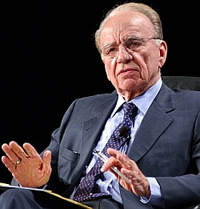 The UK Department of Trade and Industry has referred Rupert Murdoch’s Sky purchase of nearly 18% share holding in major UK broadcaster ITV.
The UK Department of Trade and Industry has referred Rupert Murdoch’s Sky purchase of nearly 18% share holding in major UK broadcaster ITV.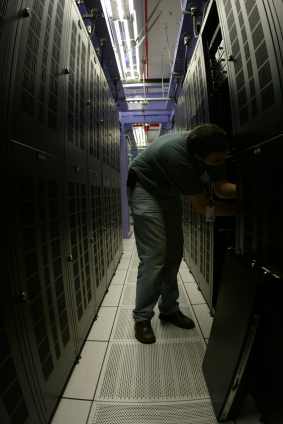 Since the operators all want to get into the same exchanges, there’s overcrowding and BT have to install new hostel space (the space where operators can put their own equipment into) which causes delays. It can take more than 6 months from when an operator puts an order in to being granted access to an exchange.
Since the operators all want to get into the same exchanges, there’s overcrowding and BT have to install new hostel space (the space where operators can put their own equipment into) which causes delays. It can take more than 6 months from when an operator puts an order in to being granted access to an exchange.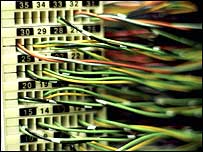 Unfortunately the economics of LLU only work if there’s a lot of customers per exchange i.e. massive scale.
Unfortunately the economics of LLU only work if there’s a lot of customers per exchange i.e. massive scale. The report found that half of all UK adults live in broadband-connected households, up 11% from 12 months ago and a hefty seven times increase from 2002.
The report found that half of all UK adults live in broadband-connected households, up 11% from 12 months ago and a hefty seven times increase from 2002. Although just under half of users had no idea how fast they were connecting to the Internet, the report put the average headline connection speed at 3.8Mbps (up from 1.6Mbps in 2005).
Although just under half of users had no idea how fast they were connecting to the Internet, the report put the average headline connection speed at 3.8Mbps (up from 1.6Mbps in 2005). Ofcom have just announced a new regulatory code for Voice over Internet Protocol (VoIP) service providers operating in the UK.
Ofcom have just announced a new regulatory code for Voice over Internet Protocol (VoIP) service providers operating in the UK. Before June 2007, all VoIP providers will be required to make it clear :-
Before June 2007, all VoIP providers will be required to make it clear :- Ofcom has just announced that it will be carrying out an inquiry into the whole area.
Ofcom has just announced that it will be carrying out an inquiry into the whole area. The inquiry will be led by Richard Ayre, a former Deputy Chief Executive of BBC News. He is expected to receive extensive input from the premium rate services regulator, ICSTIS, who are already investigating a number of individual cases.
The inquiry will be led by Richard Ayre, a former Deputy Chief Executive of BBC News. He is expected to receive extensive input from the premium rate services regulator, ICSTIS, who are already investigating a number of individual cases. Despite a
Despite a  HDForAll are a pressure group made up of TV manufacturers, retailers and public service broadcasters including DSGI, Samsung, Sony and Toshiba and BBC, ITV, Channel 4 and Five. They’re keen to remind people that there’s only a limited amount of time left to contact Ofcom to make their views known on auctioning off spectrum to the highest bidder. Background on this and how to respond are available on
HDForAll are a pressure group made up of TV manufacturers, retailers and public service broadcasters including DSGI, Samsung, Sony and Toshiba and BBC, ITV, Channel 4 and Five. They’re keen to remind people that there’s only a limited amount of time left to contact Ofcom to make their views known on auctioning off spectrum to the highest bidder. Background on this and how to respond are available on  The quarterly report snappily titled, Communications Market: Digital Television Progress Report, covering the fourth quarter of 2006 (October-December), shows the figures are up from 39% in the same period the previous year, and also from 44.7% in the Q3 2006.
The quarterly report snappily titled, Communications Market: Digital Television Progress Report, covering the fourth quarter of 2006 (October-December), shows the figures are up from 39% in the same period the previous year, and also from 44.7% in the Q3 2006.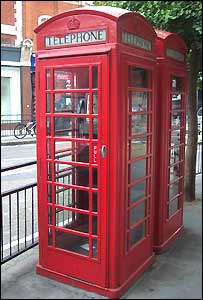 BT is under a legal obligation to provide phone boxes up and down the length of the UK, which they claim numbers 63,795. BT say that 40,500 of these phone boxes are unprofitable.
BT is under a legal obligation to provide phone boxes up and down the length of the UK, which they claim numbers 63,795. BT say that 40,500 of these phone boxes are unprofitable.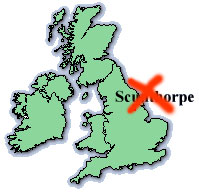 Gordon Brown has announced that a new labelling system for media content is in the works, designed to help parents protect their children from dodgy digital content.
Gordon Brown has announced that a new labelling system for media content is in the works, designed to help parents protect their children from dodgy digital content. As part of the scheme, Ofcom will introduce common labelling standards covering cinema, TV, radio, computer games and the internet.
As part of the scheme, Ofcom will introduce common labelling standards covering cinema, TV, radio, computer games and the internet.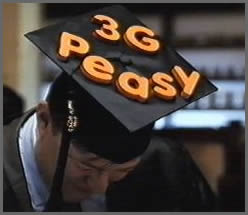 Currently Vodafone have a bigger network than Orange, so Orange would gain more than Vodafone from the deal, but in future it means that new cell sites will be used by both operators.
Currently Vodafone have a bigger network than Orange, so Orange would gain more than Vodafone from the deal, but in future it means that new cell sites will be used by both operators. Why the rush to build?
Why the rush to build? Though city centres might have a demand for 3G (for data services, no one cares about 3G voice – a voice call sounds the same whether it’s 3G or GSM), as you leave dense urban areas the appeal of 3G is less. Well maybe not less, but there are less people to use it and less of a reason for the networks to install 3G infrastructure and sites.
Though city centres might have a demand for 3G (for data services, no one cares about 3G voice – a voice call sounds the same whether it’s 3G or GSM), as you leave dense urban areas the appeal of 3G is less. Well maybe not less, but there are less people to use it and less of a reason for the networks to install 3G infrastructure and sites.